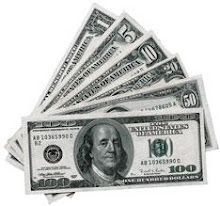Some businesses, especially in the service industries, have employees wear a uniform. Uniforms are great for a business to appear more professional. Uniforms can be expensed as long as it is not just regular clothes that you can use elsewhere. For example, if everyone in your place of business is required to wear jeans and a blue top, this is probably not considered a uniform because you can use jeans and the top anywhere as a normal piece of clothing. However if the top you have is embroidered with a company name and or logo, the cost of the shirt can be considered a uniform expense. Regular clothes that you buy to use at your place of business are not considered a business expense, even if you bought it for a special occasion such as a public speaking engagement. Neither is the cost of dry-cleaning for those clothes deductible.
However, let’s say you are a professional dancer and have to buy costumes for shows. These would be considered a business expense because your work is as an artist and you probably wouldn’t wear that sequined dress or skirt as normal clothing.
Friday, November 27, 2009
Wednesday, November 18, 2009
Telephone expense
Usually this includes a phone you have in your office. However many people have either only a cell phone, or may have more than one cell phone, one of which is used only for business. If you have a phone in your house it cannot be deducted as a phone expense unless you have a 2nd line that you can claim as a home office or fax line. As for cell phone bills, you need to make a separation between business use and personal use and expense only the business portion on your books. For instance, if your cell phone is used 50% for your business, then deduct that portion of your bill on your books. You may be able to accomplish this by paying one month out of your business account and the following month out of your personal account.
Tuesday, November 10, 2009
Bank Fees
Because banks can hit you with so many different types of fees, especially with all the recent bank consolidations, it has its own category. This includes monthly bank fees, NSF or returned check fees, copy fees and just about any other type of bank fee. This category does not include the credit card discount fee a bank deducts from deposits to your account, which is a separate category. But it can include the other miscellaneous fees banks charge these days for having credit card deposits which are normally listed in your merchant credit card statement. Also as a reminder you can always try to ask the bank for credit on some of the fees they charge. Many banks will give you a one time or once a year credit. It never hurts to ask.
Subscribe to:
Comments (Atom)
